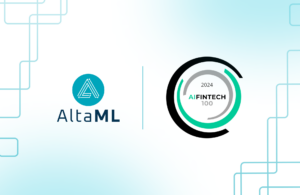In the intricate dance of global trade, where $32 trillion in goods pirouette across borders annually, tariffs are far more than line items on a balance sheet. They are potent strategic forces, capable of dictating supply chain viability and reshaping market dynamics overnight. With disruptions threatening trillions in trade flows, the once-niche $120M-$300M tariff tracking market, a key segment of the $1.2B global trade management ecosystem, has taken centre stage.
For years, tariff management primarily focused on ensuring companies used the correct codes and paid the accurate duties. However, in today’s volatile trading environment, traditional tracking activities are no longer sufficient. Manual data entry and static databases can’t keep up with the rising geopolitical uncertainty and regulatory complexity, and the cost of this lag is growing.
The Mounting Cost of Complacency
From our vantage point as AI practitioners deeply embedded in solving complex business challenges, it’s clear that relying on outdated tariff tracking methods is more than inefficient, it’s a strategic liability. Consider the tangible cost of inaction or suboptimal processes:
- Missed Opportunities: An estimated 33% of eligible exports globally fail to capitalize on Free Trade Agreement (FTA) savings, translating to billions in lost value. Manual systems struggle to navigate complex rules of origin.
- Costly Errors: Misclassified goods using outdated Harmonized System (HS) codes lead to penalties, shipment delays, and customer frustration. For companies managing diverse product lines, this complexity exceeds human scale and creates unacceptable financial and reputational risk.
- Reactive Vulnerability: Static databases offer no foresight. When a tariff change hits unexpectedly, like the initially proposed 25% U.S. tariffs affecting North American trade, businesses are left scrambling to adjust sourcing, pricing, or logistics. This reactive posture can mean the difference between margin gain and loss in a world demanding agility.
The “good enough” approach of yesterday is costing businesses today, not just in potential penalties but also in the opportunity cost of inefficient operations and the strategic risk of being outmaneuvered. This demands a fundamental reframing from passive tariff management to a proactive strategy.
Artificial intelligence isn’t just an “upgrade”; it’s a paradigm shift. It moves tariff management from a compliance chore to a strategic advantage by enabling businesses to anticipate, respond to, and optimize in real-time including:
- Precision at Unprecedented Scale: AI-powered classification tools achieve HS code accuracy rates nearing 99%, dramatically reducing errors compared to manual efforts. This leads to faster customs clearance, fewer disruptions,, and significant cost savings, especially for businesses managing thousands of SKUs.
- Real-Time Awareness and Agility: AI platforms continuously scan global trade data, news feeds, and policy documents, providing instant alerts on tariff changes. This transforms businesses from active to proactive, enabling them to make faster, better-informed decisions before costs fully materialize.
- Predictive Foresight for Proactive Planning: Advanced AI models analyze historical data and geopolitical trends to forecast potential tariff shifts. Imagine having six months’ lead time to pivot sourcing strategies or adjust pricing based on predicted changes. This predictive capability is a cornerstone of competitive agility
- Cost Optimization Intelligence: Beyond tracking tariffs, advanced AI simulates sourcing and logistics scenarios to minimize their impact, recommending optimal sourcing, inventory adjustments, or logistics routes, often reducing duty costs by 15-30% or more. This directly addresses the commercial imperative of cost reduction and value creation.
The trend is clear: 80% of trade compliance leaders are investing in AI to combat tariff volatility, with early adopters reporting saving over 1,000 hours monthly. This isn’t just automation; it’s infusing intelligence to drive a distinct competitive advantage.
Navigating the AI Transition: Challenges and the Strategic Imperative
AI adoption in trade isn’t without its challenges. Data quality varies, and no model can fully predict sudden political shocks. However, these complexities highlight a key truth: generic tools won’t cut it. What’s needed are custom, high-precision AI solutions tailored to the complexity of individual trade environments.
For businesses operating in high-stakes global markets, the opportunities are substantial:
- E-commerce Expansion: AI can help accurately predict and manage cross-border duties, mitigating margin erosion.
- Manufacturing Resilience: AI provides the supply chain visibility needed to proactively map dependencies and mitigate tariff-driven cost increases.
- FTA Maximization: With hundreds of FTAs notified since 1995 (The Missing Pieces of The FTA Puzzle), AI’s ability to analyze complex rules of origin becomes a powerful competitive differentiator.
From Reactive Tracking to Proactive Advantage with AI
Tariff tracking may seem like a niche function, but it represents a critical opportunity for transformation from retrospective compliance to proactive, predictive strategy. Businesses still reliant on manual processes risk more than just errors; they are missing out on strategic insights that could reduce costs, improve resilience, and create a lasting competitive edge.
The real question isn’t whether AI will reshape tariff management but how strategic companies will leverage it. Will they settle for basic compliance, or will they embrace AI-driven insights to anticipate shifts, optimize flows, and intelligently outmaneuver the complexities of modern trade?
Ready to Harness AI for Your Trade Strategy?
Navigating this complex landscape requires more than off-the-shelf tools; it calls for tailored AI strategies. Ready to move beyond reactive tariff tracking and unlock strategic advantage through predictive insights and optimization?
Explore how custom AI solutions, grounded in a deep understanding of your unique business challenges, can transform your approach to global trade and provide a durable competitive edge.
 Navigating Bias in AI with Open-Source Toolkits
Navigating Bias in AI with Open-Source Toolkits
 AltaML Secures Spot on AIFinTech100 for Consecutive Year
AltaML Secures Spot on AIFinTech100 for Consecutive Year
 Jurisage and CiteRight Finalize Merger, Become Jurisage Group Inc.
Jurisage and CiteRight Finalize Merger, Become Jurisage Group Inc.
